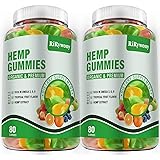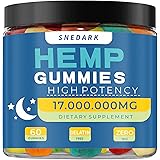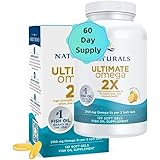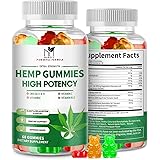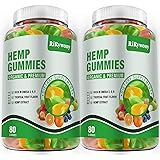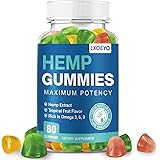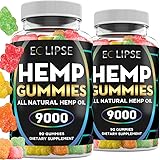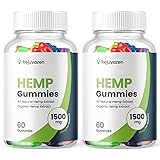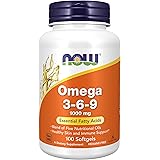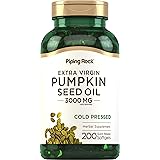Have you ever found yourself scratching your head, wondering if that “hemp oil” bottle on the shelf is the same as the “CBD oil” everyone’s talking about? It’s a common point of confusion, and for good reason! As the video above expertly explains, the world of hemp-derived products can seem like a labyrinth of similar-sounding terms and labels. Navigating these options effectively means understanding a fundamental distinction: the difference between CBD oil, often labeled as hemp extract oil, and hemp seed oil.
While both originate from the versatile hemp plant, their uses, benefits, and the way they’re produced are vastly different. One is cherished for its cannabinoid content and therapeutic potential, while the other is a nutritional powerhouse and a skin-loving elixir. Let’s delve deeper into these two distinct oils, shedding light on their unique properties and helping you make informed choices for your wellness journey.
Demystifying “Hemp Oil”: Extract vs. Seed
The term “hemp oil” often acts as an umbrella, deceptively covering two very different products. To truly understand what you’re buying, it’s crucial to look beyond this generic label. We primarily distinguish between hemp extract oil, which contains cannabinoids like CBD, and hemp seed oil, which is prized for its nutritional profile.
The core difference lies in which part of the hemp plant is used. Hemp extract oil, or what is colloquially known as CBD oil, is derived from the flowers, leaves, and sometimes the stalks of the hemp plant. These parts are rich in cannabinoids, terpenes, and other beneficial plant compounds. Conversely, hemp seed oil is exclusively pressed from the seeds of the plant, much like how olive or sunflower oil is made.
Understanding True CBD Oil: Hemp Extract Oil
When you’re searching for the wellness benefits associated with cannabidiol, or CBD, you’re looking for hemp extract oil. This type of oil is created through a sophisticated extraction process designed to pull valuable compounds, particularly cannabinoids like CBD, from the plant material. Common extraction methods include CO2 extraction, ethanol extraction, or hydrocarbon extraction, each carefully managed to preserve the plant’s delicate chemistry.
The resulting extract is then typically diluted with a carrier oil, such as MCT oil, hemp seed oil (ironically!), or olive oil, to create the final product in tincture or dropper bottles. This concentration and careful processing are what differentiate it significantly from simple seed oil.
Full Spectrum, Broad Spectrum, or Isolate: What Do They Mean?
Hemp extract oil isn’t a one-size-fits-all product. It comes in a few key variations, each offering a different cannabinoid profile and user experience:
- Full Spectrum CBD Oil: This version contains a wide array of cannabinoids, including trace amounts of THC (within the legal limit of 0.3% in the US), terpenes, flavonoids, and other plant compounds. The presence of these multiple compounds is believed to create an “entourage effect,” where they work synergistically to enhance CBD’s therapeutic potential.
- Broad Spectrum CBD Oil: Similar to full spectrum, broad spectrum oil includes various cannabinoids and terpenes but undergoes an additional process to remove detectable levels of THC. This option is popular for those who want the benefits of the entourage effect without any concern about THC consumption.
- CBD Isolate: As the name suggests, this is the purest form of CBD, isolated from all other plant compounds, including other cannabinoids and terpenes. It typically comes as a white powder or is infused into an oil, offering a CBD-only experience without the entourage effect.
Each type offers distinct advantages, allowing consumers to choose based on their preferences and specific needs. Regardless of the type, the potency and purity are paramount for an effective product.
The Non-Negotiable: Third-Party Lab Results (COA)
True CBD products, made with genuine hemp extract oil, should always provide readily accessible third-party lab results, often referred to as a Certificate of Analysis (COA). These reports are your window into the product’s integrity. They verify the exact cannabinoid content, ensuring it matches the label claims, and confirm that the THC levels are within legal limits.
Beyond cannabinoid profiles, a comprehensive COA will also test for potential contaminants such as heavy metals, pesticides, residual solvents from the extraction process, and microbial impurities. This transparency is a critical indicator of a reputable brand and helps you avoid the “deceptive marketing” mentioned in the video, where products labeled vaguely as “hemp oil” are sold at unusually low prices without any actual CBD content.
The Nutritional Powerhouse: Hemp Seed Oil
Separate from cannabinoid-rich extracts, hemp seed oil is a culinary and cosmetic gem. It’s produced by cold-pressing the small, nutrient-dense seeds of the hemp plant. This method ensures that its delicate nutritional compounds remain intact, preventing degradation from heat.
Unlike hemp extract oil, hemp seed oil contains negligible amounts of cannabinoids, if any. Its value lies entirely in its exceptional nutritional profile, making it a star ingredient in healthy diets and natural skincare routines.
Rich in Essential Fatty Acids and More
Hemp seed oil is celebrated for its remarkably balanced composition of essential fatty acids, crucial for human health. It contains an optimal 3:1 ratio of omega-6 (linoleic acid) to omega-3 (alpha-linolenic acid – ALA), a balance often lacking in modern diets. These polyunsaturated fats are vital for heart health, brain function, and reducing inflammation throughout the body.
Beyond omegas, hemp seed oil is packed with other beneficial nutrients:
- Protein: Although an oil, hemp seeds are a complete protein source, containing all nine essential amino acids. While the oil itself contains less protein than the seeds, it contributes to overall nutrient intake.
- Antioxidants: It’s a good source of vitamin E (a powerful antioxidant that protects cells from oxidative damage), and also contains phytosterols and carotenoids. These compounds help combat free radicals, supporting cellular health and slowing down aging processes.
- Minerals: Hemp seed oil delivers an impressive array of minerals, including zinc (essential for immune function and skin health), magnesium (critical for muscle and nerve function), calcium (for bone health), and iron (vital for oxygen transport). It also contains potassium and phosphorus, further rounding out its comprehensive nutritional benefits.
Culinary Versatility and Important Considerations
With its mild, nutty flavor, hemp seed oil makes a fantastic addition to various dishes. It’s perfect for enhancing smoothies, whisking into salad dressings, drizzling over roasted vegetables, or incorporating into dips like hummus and pesto. Its rich nutrient profile makes it an easy way to boost the health benefits of your meals.
However, it’s vital to remember that hemp seed oil has a very low smoke point. This means it’s not suitable for high-heat cooking methods like frying or sautéing. Exposing it to high temperatures can destroy its delicate fatty acids and beneficial compounds, also giving it an unpleasant taste. Always use it as a finishing oil or incorporate it into foods at room temperature to preserve its full nutritional value.
Hemp Seed Oil for Radiant Skin and Hair
Beyond the kitchen, hemp seed oil truly shines in the realm of skincare and beauty. Its unique composition makes it an exceptional ingredient for various skin types and concerns, leveraging its anti-inflammatory and balancing properties.
A Killer Moisturizer and Skin Balancer
One of hemp seed oil’s standout qualities is its ability to moisturize without clogging pores. It’s a non-comedogenic oil, meaning it won’t contribute to blackheads or breakouts, making it suitable for both dry and acne-prone skin. It mimics the natural lipids found in our skin, helping to regulate oil production. For oily skin, this can mean fewer breakouts; for dry skin, it means a stronger moisture barrier, preventing water loss and keeping skin hydrated and supple.
Soothing Inflammation and Boosting Anti-Aging
The high content of gamma-linolenic acid (GLA), a potent omega-6 fatty acid, is a key player in hemp seed oil’s anti-inflammatory capabilities. GLA can significantly reduce skin inflammation, offering relief from conditions like acne, eczema, psoriasis, and general redness. It works by modulating the body’s inflammatory responses, promoting a calmer, clearer complexion.
Furthermore, its antioxidant properties, particularly from vitamin E, provide significant anti-aging benefits. These antioxidants fight free radical damage, which is a primary cause of premature aging, wrinkles, and fine lines. By protecting skin cells and supporting elasticity, hemp seed oil helps maintain a youthful and vibrant appearance, actively working against those tell-tale signs of aging.
Naturally Antimicrobial for Skin Protection
Hemp seed oil isn’t just about moisturizing and soothing; it also acts as a natural defender for your skin. Its antimicrobial properties mean it can help strengthen the skin’s natural resistance to bacterial, viral, and fungal infections. This makes it an excellent choice for those prone to skin issues, helping to maintain a healthy skin microbiome and providing an extra layer of protection against environmental stressors and pathogens.
In essence, whether you’re looking for a potent moisturizer to combat dryness, a natural remedy for inflammatory skin conditions, or a proactive solution for anti-aging and skin protection, hemp seed oil stands out as a versatile and effective natural ingredient. Understanding these benefits empowers you to choose the right hemp product for your specific needs, be it the cannabinoid support of CBD oil or the nourishing power of hemp seed oil.


